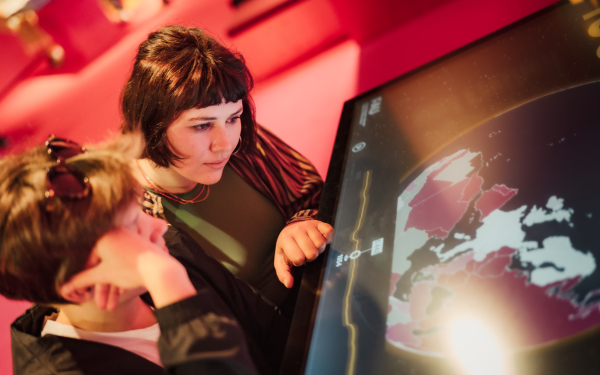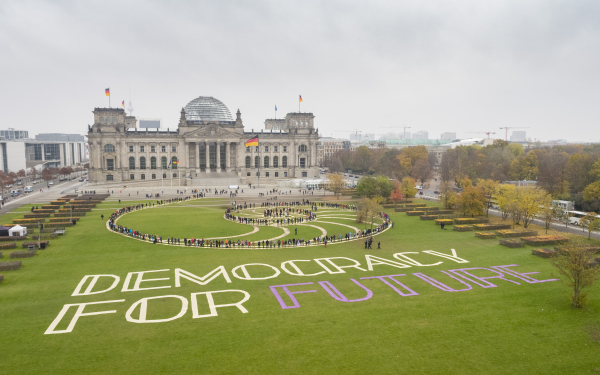Radical democracy – How grassroots movements lead to solidarity and problem solution
#Democracy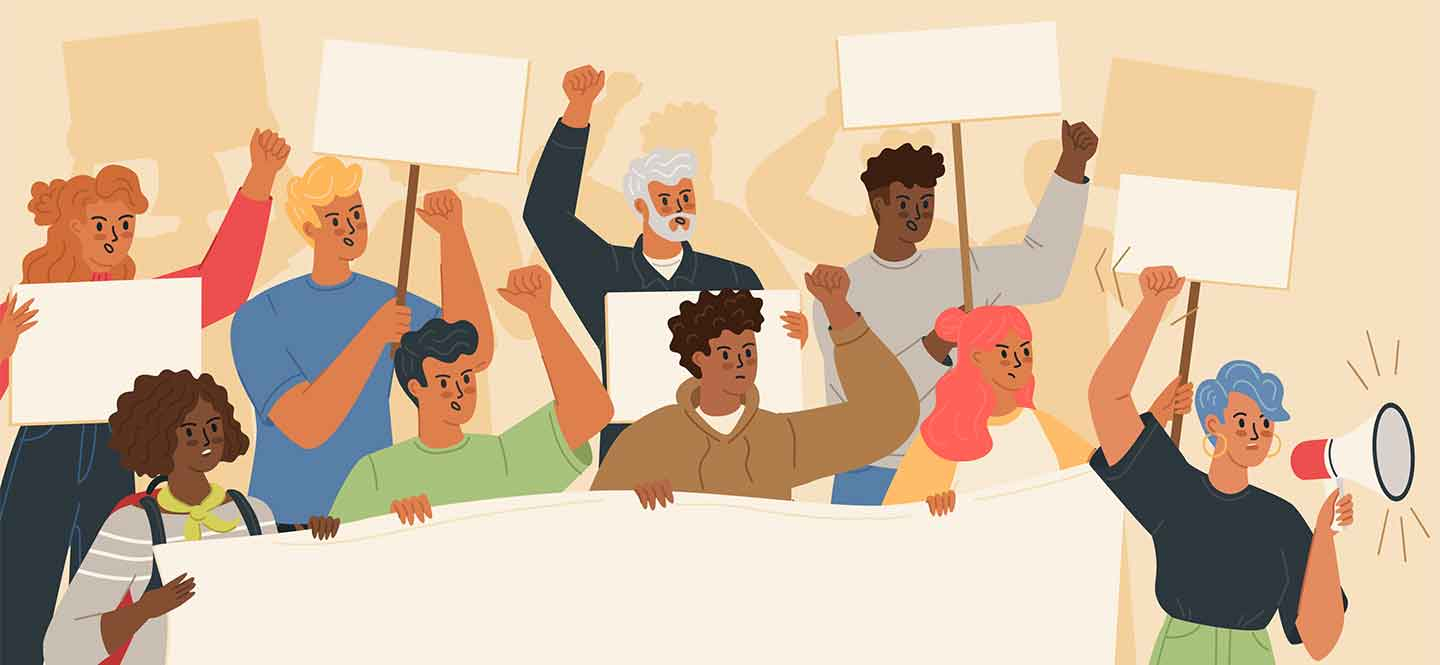
Wanlee Prachyapanaprai – www.istockphoto.com
5 countries, 10 cities, over 100 initiatives – in a large-scale research project, social scientist Helge Schwiertz is investigating how citizens are working together at local levels to find solutions to the major crises facing Europe.
Crisis in the sectors of housing, nursing care, and dealing with migrants: indeed, hardly any area of social life can do without the six-letter word – a small word that indicates major problems. The research project 'Enacting Citizenship and Solidarity in Europe "From Below" (ECSEuro)', led by Dr Helge Schwiertz, addresses the question of how people directly affected by such crises are finding ways to deal with them. People who do not sit at the big steering wheel of politics, but rather small cogs in the gears of society who are trying to contain the crises and point out grievances – collectively, in solidarity, and as they themselves see fit.
It all began a good three years ago. Together with his colleagues, Schwiertz, a postdoctoral researcher at the Chair of General Sociology at the University of Hamburg and now 40 years old, was pondering over suitable research questions for submission to the Volkswagen Foundation, which had announced a funding initiative with the title 'Challenges for Europe'.
For the researchers, the challenges for Europe emerged quite clearly from the major crises of our time and their consequences. There is the financial crisis, which began in the mid-2000s and even today still has a strong impact on the housing sector. The outbreak of wars and conflicts has driven thousands of people to flee to Europe, especially since the 2010s, posing questions of resource distribution and justice for the countries of the European Union. And in 2020, the pandemic revealed particular shortcomings in the sectors of nursing and care.
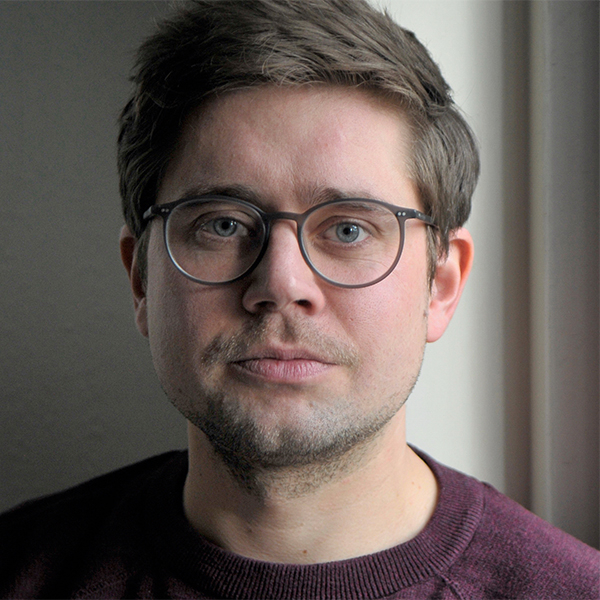
Social theory and political theory, social movements as well as racism and migration research are some of Helge Schwiertz's research interests at the Department of Social Sciences at the University of Hamburg.
Schwiertz and his team quickly came to the conclusion, he says: 'That nation states don't have any real, suitable solutions to these crises, which is why we wanted to find out whether there are more innovative, more suitable approaches for addressing these crises at the level of cities and urban social movements.' A research approach that caught on, and so in February 2022 the project got underway, with Schwiertz as the unusually young head of the transnational project.
Focus on housing, migration, and care work
The first step was to take stock of the situation in two selected cities from each of the five countries in which research was to be conducted: Italy, Slovenia, Switzerland, Germany, and Denmark. The key question for this so-called mapping was: Which citizens' initiatives in which cities deal with problems in the three areas of housing, migration, and care work they wanted to focus on?
In a second step, the researchers analysed relevant documents. They collected all the analogue and digital material they could find on or produced by the citizens' initiatives: for example, flyers calling for demonstrations or posters appealing for signatures; websites that provide information on the demands or actions of citizens' initiatives; newsletters announcing current offers of help for people experiencing hardship. 'We looked at how the political initiatives view current problems, what is important to them and what solutions they propose,' explains Schwiertz. And he emphasises: 'We saw the initiatives themselves as knowledge producers who provide their own strong analyses of current conditions.' An approach that maximises equitable partnership between researchers and those being researched.
Most initiatives tackle everyday problems: they build up mutual support, which forms a basis for protest actions aimed at politicians.
Based on the mapping and document analyses, political initiatives were then selected and subsequently accompanied using ethnographic field research methods. In other words, participant observation and interviews with open questioning techniques instead of data collection and statistical analysis. In short: accompanying, observing, being there when the initiatives organised and held meetings, discussed problems, and looked for solutions.
The transcripts of the interviews, the notes from the field research, everything was always shared and discussed among the teams: In smaller working groups and at the meetings of the transnational consortium, which take place twice a year at different locations.
Creating social connections
What was the outcome? Helge Schwiertz summarises as follows: 'Most initiatives tackle everyday problems: they build up mutual support, which forms a basis for protest actions aimed at politicians.' And he emphasises: 'Mutual support itself is already a form of political activism; it creates stable social connections that have an impact – in a sustainable form of organisation.'
Specifically, for example, these are the 'Women in Action' from Hamburg, who protest against the accommodation of refugees in crowded camps in the suburb of Rahlstedt, but also live out community life, for example by eating together or organising activities for children. Childcare plays an important role in political activism. Because only if this is guaranteed can their mothers find the necessary time to participate.
Another example from Hamburg is the group 'Wilhelmsburg Solidarisch', which organises local meetings and regularly offers mutual social counselling in the working-class district, which is stigmatised as poor but is currently becoming increasingly gentrified. Here, members of vulnerable groups can talk about their problems, such as unemployment, rising rents, and displacement. Talking leads to offers of mutual help and often to further concrete actions such as demonstrations in front of the job centre or the planning of a local trade union.
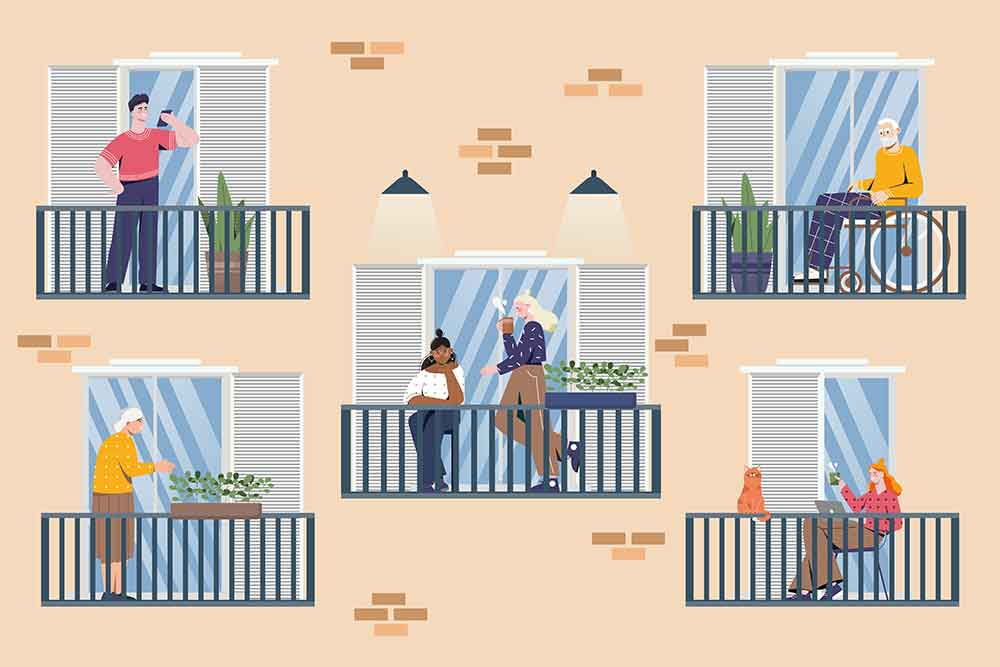
In Denmark, too, the fight for affordable housing goes beyond the mere right to housing. A 2019 law on the restructuring of 'problem neighbourhoods' in cities, also known as the 'ghetto law', accompanied at the time by the polemical battle cry 'No more parallel societies by 2030', has since led to the displacement of the resident population on the basis of racist criteria. 'The groups that formed to protest against this are not only fighting against displacement and marginalisation, but also for the right to community and community life,' explains Schwiertz.
In Switzerland, on the other hand, many groups are addressing the issue of care work. Because there are fewer state benefits there, such as parental allowance, to compensate for financial losses due to unpaid care work, local groups are trying to create a balance. For example, through collective and self-organised childcare or chat groups for parents, in which mothers in particular can discuss everyday problems and ask for help in specific cases, even when it comes to material hardship. 'Talking about everyday problems creates a sense of solidarity,' says Schwiertz. This also counters the ever-increasing individualisation and isolation in our society and the phenomena that go hand in hand with this, such as loneliness.
Radical democracy and preventive anti-fascism
Solidarity and citizenship are key concepts for the researchers. Schwiertz explains: 'When we talk about citizenship, we often think of the individual person, the citizen, usually in his or her relationship to the state. What we want to develop is a concept of horizontal citizenship.' This means that citizens can be political subjects beyond state structures, elections and offices and their hierarchies.
In research, this is also referred to as prefigurative politics. In relation to citizens' initiatives, this means 'that they don't just make a radical political demand and then wait for the state to react and solve their problems. Instead, they become active themselves and create structures that already provide answers to what the state does not provide or only provides inadequately.' Another term that often comes up in conversation with Helge Schwiertz is that of the commons. These are the goods that citizens produce for the community, which build a bridge between the public sphere of state provision and private property and are essential for practical everyday infrastructures of solidarity.
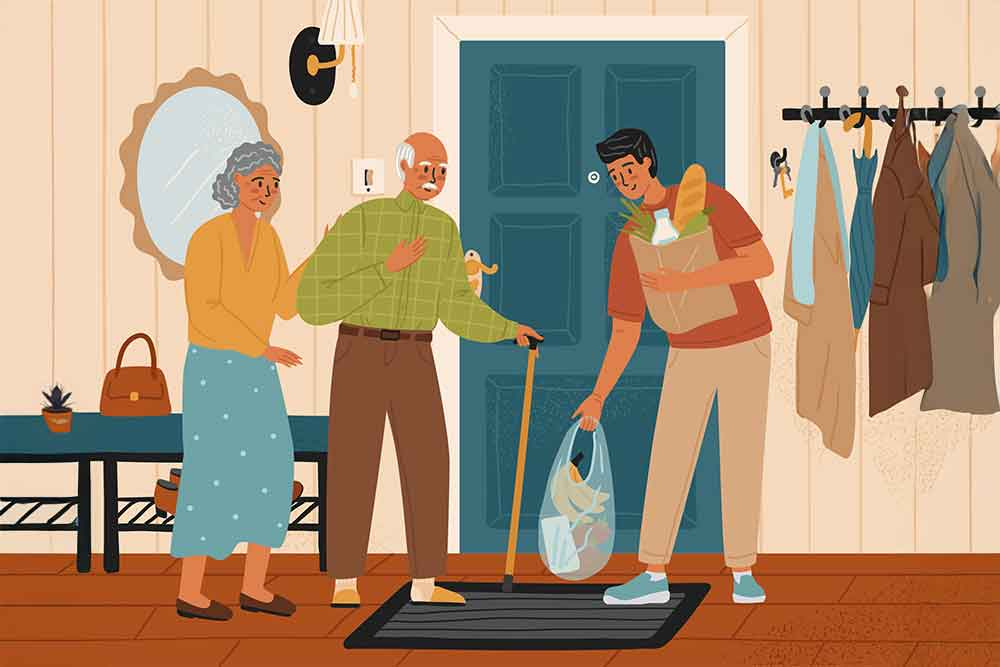
'What we find in the citizens' initiatives are processes of radical democracy, because democracy doesn't just take place in parliaments,' summarises Schwiertz. He sees democracy as an 'infinite task' in which the principles of equality and freedom are practised in all everyday situations. He therefore also draws the following conclusion from the research project: 'This form of grassroots politics acts like preventative anti-fascism, as people regain a sense of self-efficacy, and feelings of powerlessness in the face of grievances are minimised.'
An important counterweight against right-wing extremist forces, which claim concepts such as solidarity not least for themselves, but by excluding all those who find no place in their ideology – and thus against the democratic principle of equality. 'Right-wing extremist parties such as the AfD purport to provide answers to social issues, but merely offer simplistic solutions,' says Schwiertz. In fact, they predominantly problematise a single social phenomenon, namely migration. This, though, does nothing to solve people's concrete problems, but instead fuels fear, which in turn can lead to feelings of powerlessness. Citizens' initiatives that act according to democratic principles therefore act as an antidote: they break down isolation and create social networks that are open to the outside world and accessible to everyone. They offer prospects for concrete solutions to concrete problems.
Science that creates knowledge for all
Another question that the research team addressed was that of translocal connections between the initiatives. In other words, whether groups network and exchange ideas with other communities working on similar grievances beyond their neighbourhood, city, or even national borders. Overall, however, the researchers found this to be rarely the case. 'Networking is a major challenge for most initiatives. Their capacities are often already exhausted by the day-to-day struggles,' says Schwiertz. Nevertheless, there are some interactions. The Berlin campaign 'Deutsche Wohnen & Co expropriate', for example, served as a model for a similar initiative in Hamburg 'Hamburg Expropriated'. Moreover, it has also inspired housing initiatives in Swiss and Danish cities.
We don't just want to be the ones who go and tap knowledge for science. We also want to be of use to the movements'. For more grassroots radical democracy.
Campaigns that attempt to initiate major changes by means of a referendum often require not only organisational skills and resources, but also legal expertise or influential contacts in stakeholder circles. However, who brings this wealth of experience to the table? In fact, it is not only activists who have been involved in politics for decades who support citizens' initiatives, says Schwiertz: 'We have seen that activism often comes from those directly affected, such as those who experience displacement in their neighbourhood or discrimination as refugees. The prerequisite for this is having the possibility to discuss common problems, politicisation, and self-empowerment in the first place'. This, in turn, often leads to people with more time looking after the children of those affected – as is the case with Hamburg Women in Action.
And what happens to all the knowledge that the research groups have amassed over the three years? Do the people being researched also benefit from it? This is an important point, says Schwiertz. Science communication is to take place in various ways: Not only are two books in preparation – 'Framing Solidarities in Times of Multiple Crises' and 'Enacting Citizenship and Solidarity' – but also a handbook in which the knowledge will be presented in a generally understandable way and the citizenship practised by the initiatives will be communicated to a wider audience. The results of the 'Transurban Solidarity Labs', a form of workshop meeting where representatives of the initiatives can come together and exchange ideas, will also be incorporated here.
Various practice partners, above all the NGO 'European Alternatives', also act as a link between the researchers and the initiatives, providing additional support for knowledge exchange and communication. Schwiertz says that he and his team see their work as 'activist research'. 'We don't just want to be the ones who go and tap knowledge for science. We also want to be of use to the movements.' For more grassroots radical democracy.

